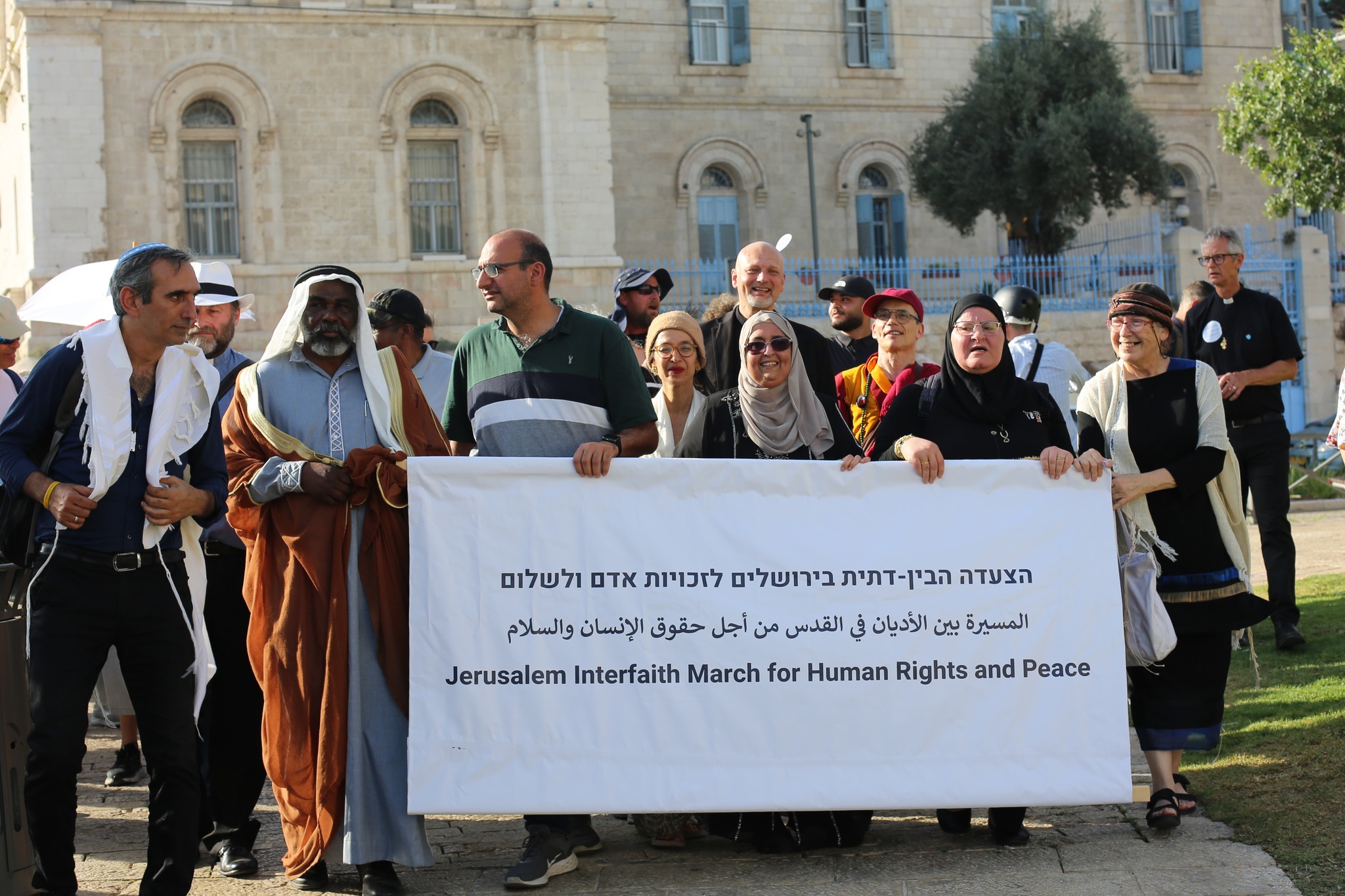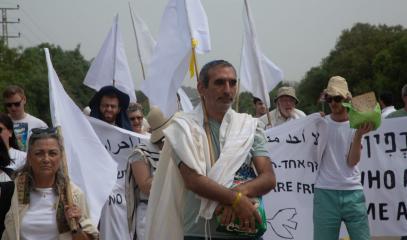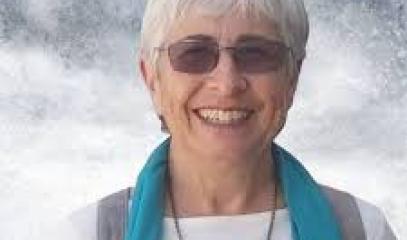In the name of Vivian Silver activists and religious people fill Jerusalem’s Zion Square for peace in Gaza
Six hundred days after the beginning of the conflict, Christians, Muslims and Jews rallied in the name of the activist killed by Hamas to uphold the values of coexistence and humanity against the ongoing massacres, raising their voice “against the war” and against those “who think there aren’t innocent people” in Gaza. Meanwhile, the Israeli cabinet has approved 22 more settlements and outposts in the West Bank.
Jerusalem (AsiaNews) – “We still cannot go home; we have lost hundreds of friends, and there are still 58 Israeli hostages in the Hamas tunnels,” said Rabbi Avi Dabush in a message of resistance and resilience.
The leader of Rabbis for Human Rights spoke yesterday at a rally in Jerusalem’s Zion Square, in favour of the end of the war in Gaza and the return of the hostages.
The event was organised to mark 600 days since the start of the war, in memory of Vivian Silver, the pacifist and founder of Women Wage Peace killed on 7 October 2023 in the terrorist attack, one of the 1,200 victims on the Israeli side.
This “great struggle is to maintain our values. To stand up against the massive death of children and women in Gaza, to raise a consistent and principled voice against the war and against those who think there aren’t innocent people,” Dabush said.
Religious leaders and ordinary citizens gathered outside the Old City to mark 600 days since the start of the war in Gaza and in response to the violence of the “flag parade” on Monday by ultra-rightist nationalist Jews celebrating the annexation of East Jerusalem.
Hundreds of Christians, Jews and Muslims marched in the city for peace, which has been marginalised by an Israeli government whose political agenda is characterised by all-out war.
“The effort to turn it into a city of Jewish chauvinism where both its inhabitants and its visitors are mistreated and humiliated is a desecration,” said Ori Weisberg, one of the participants, speaking to The Times of Israel.
During the flag parade, Weisberg went to the Old City, to protect Palestinians from attacks by radical young Israelis in the Muslim Quarter.
Rabbi Avi Dabush is one of the people who addressed the rally remembering the attack on 7 October and the subsequent spiral of war and violence, and the more than 53,000 dead in Gaza, mostly civilians, including women and children.
“This terrible day began the bloodiest period in the history of the Israeli-Palestinian conflict, which has been going on for 20 months,” he said.
A resident of Kibbutz Nirim, Dabush spent hours in his shelter with his wife and two children on 7 October as terrorists attacked, killing five civilians and kidnapping five others.
“Today we had to be here,” said Kefaia Masarwi, a member of Women Wage Peace who took part in the march.
“What is happening is horrible for everyone. We came to say enough with the war, enough with the time the hostages are not returning, enough with killing children,” the activist added.
“Jerusalem is supposed to be the city of peace, and it’s so much the opposite now,” echoed Jo Even Caspi, another member of the Women Wage Peace founded by Vivian Silver.
Priests, nuns and pastors, people wearing kippahs and headscarves mingled, many wearing white shirts and holding white umbrellas, singing “We Shall Overcome”, the iconic song associated with the US civil rights movement.
Germany’s Ambassador to Israel Steffen Seibert and Sheikh Hassan Abu Elyon, from the Bedouin community of Rahat, were among those who joined the march.
“In Islamic tradition, salam [peace] is one of the names of God,” Sheikh Hassan said. “May God bless everyone, Jews and Arabs, Muslims and Christians.”
He wasis echoed by Father Piotr Żelazko, patriarchal vicar for Hebrew-speaking Catholics in Israel, according to whom participating in the march was important because “this is a crucial moment in the history of Israel.”
“Despite the darkness that surrounds us, there are many people who believe there can be peace, which is not only the absence of war but also social justice and relationships with the other,” he said.
Asked about the Catholic Church, which is often perceived as closer to the Palestinians than to Israel, the priest insisted on its Israeli identity.
“We have been part of this country for 70 years, and for 70 years, we have been 100% Israeli and 100% Catholic,” he stressed.
Yesterday, thousands of people also crowded Hostage Square in Tel Aviv to mark the 600 days of hostages in the hands of Hamas and to demand their return to their families.
Participants attacked the far-right government led by Prime Minister Benyamin Netanyahu, whom they held responsible for “another 600 days of failure,” and for “fleecing the public, of covering up the investigation of the greatest failure in our history”.
Meanwhile, the Israeli cabinet is more interested in war, settlements, and a policy of expansion than in the return of the hostages.
Israel’s Ministry of Defence announced that the cabinet approved the construction of 22 new settlements in the West Bank, including new communities and the legalisation of several outposts (illegal under international law).
For the leaders of Israel’s most pro-settler movement, the cabinet vote is “a historic decision,” asserting that the settlements will “strengthen the strategic grip on all parts of Judea and Samaria (West Bank)” and “prevent the establishment of a Palestinian state.”
For Israel’s Defence Minister Israel Katz, the move “strengthens our hold [on the territory] and is a decisive response to Palestinian terror.”









.png)










